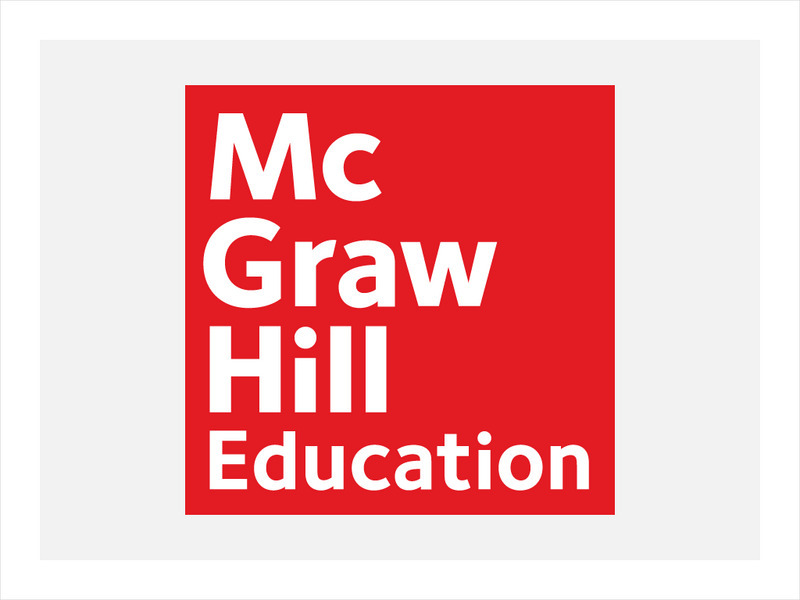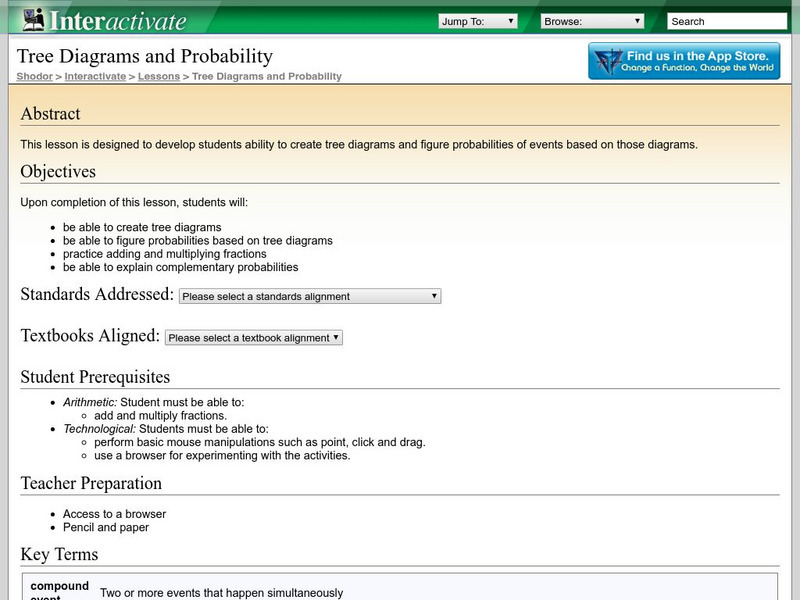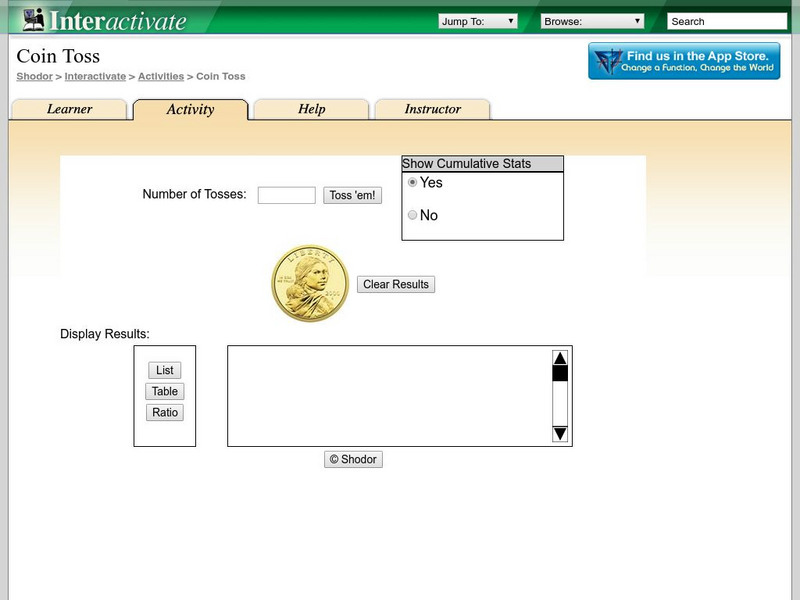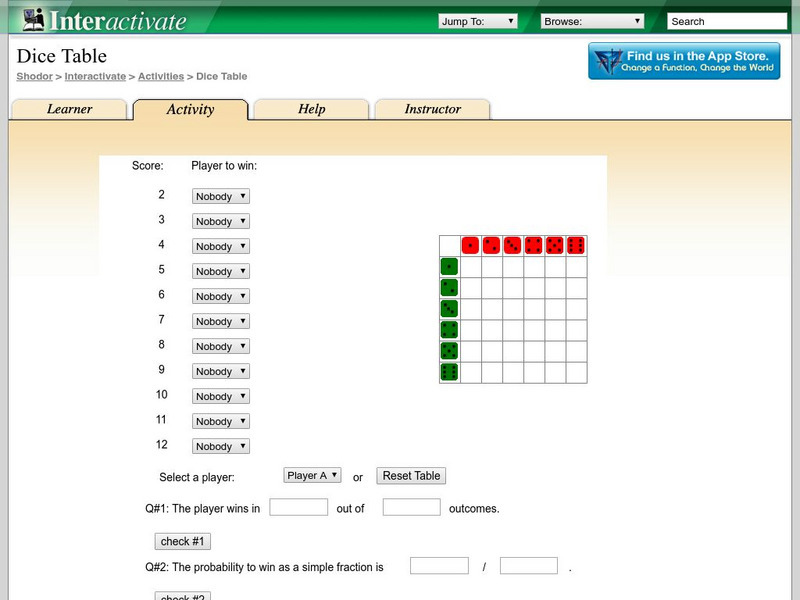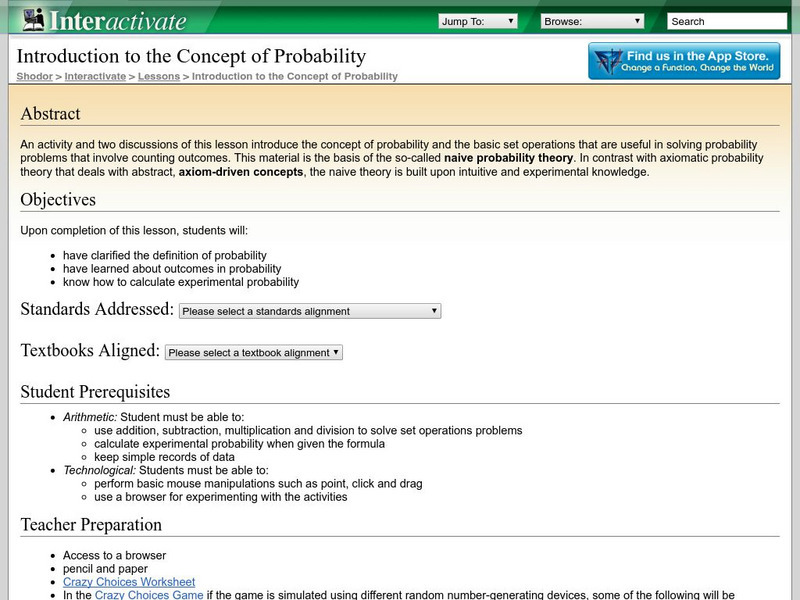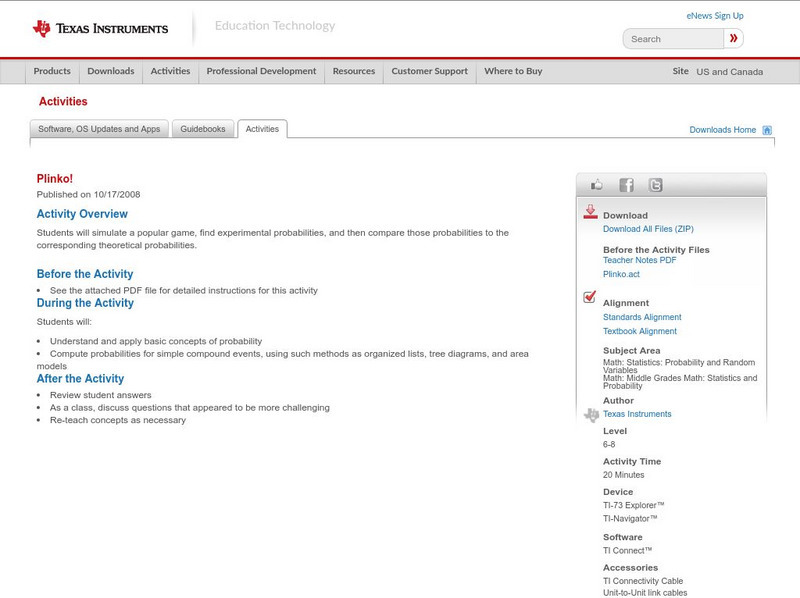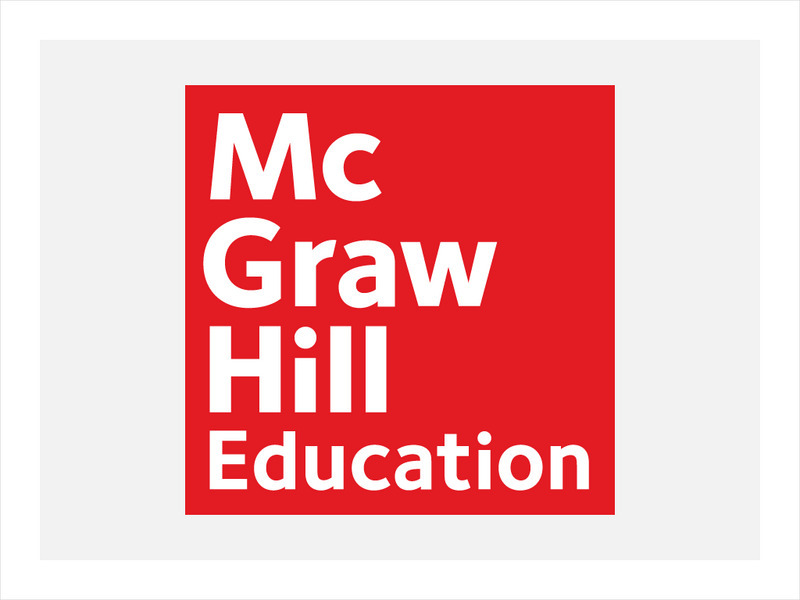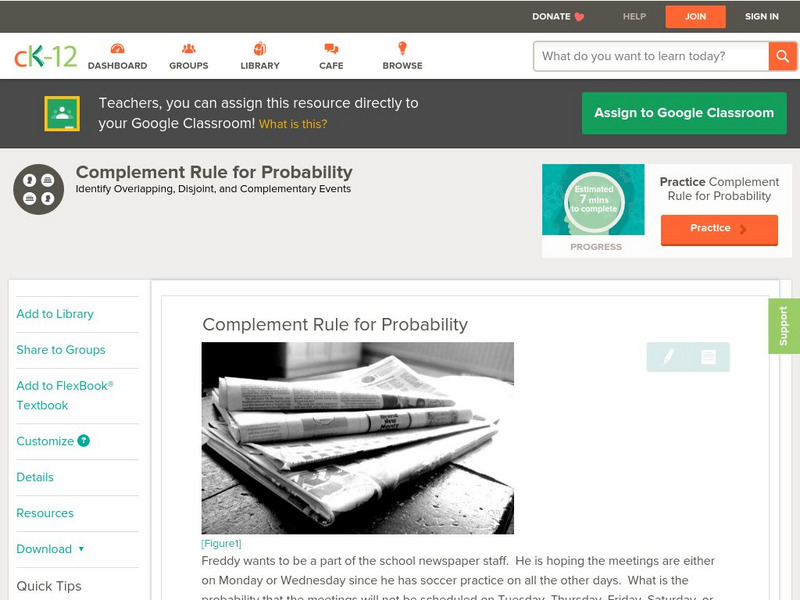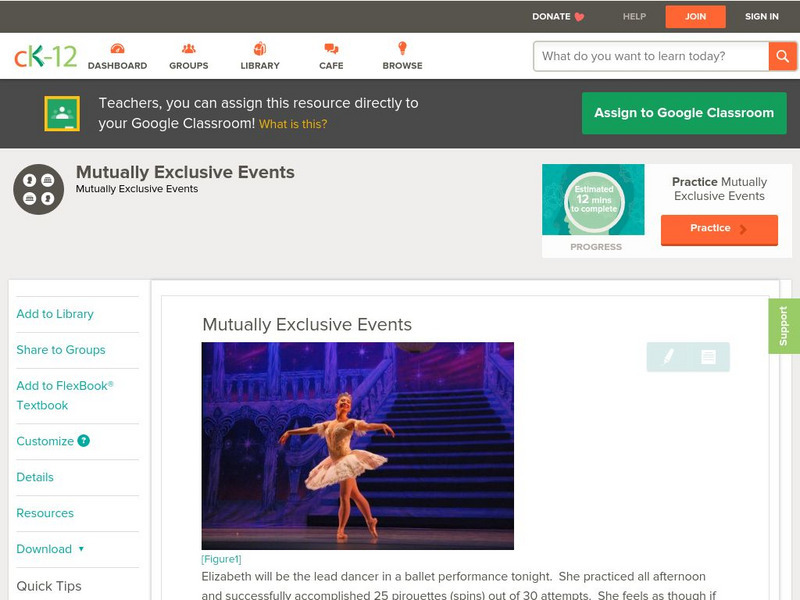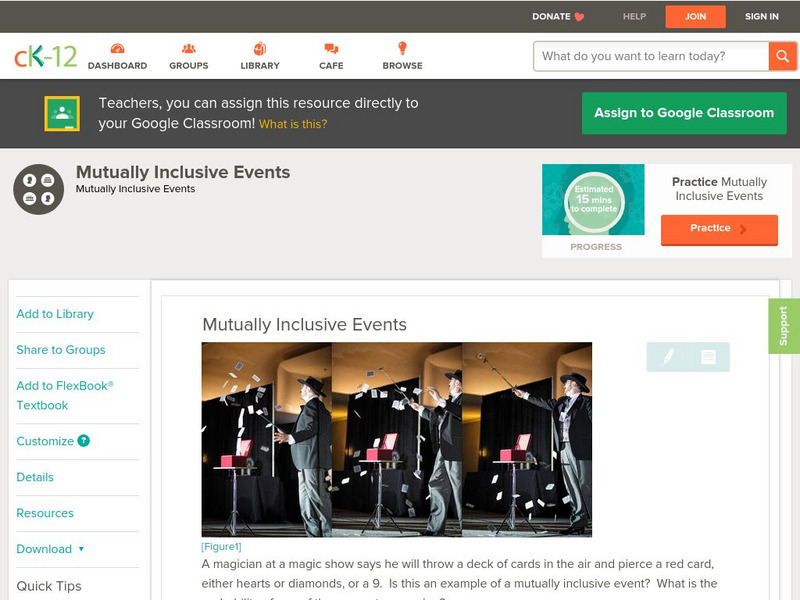Curated OER
Circles in the Landscape: Irrigating Oklahoma Crops
How do you grow crops in a area with insufficient rainfall? Why you irrigate, of course. Class members investigate irrigation systems by designing a system of their own. After examining irrigation related concepts, vocabulary terms, and...
Curated OER
Managing Nutrients in Livestock Manure
Livestock managers reinforce math and science skills while learning about the nutrients found in manure. They predict which animal produces the largest amount and which animal's manure contains the most nitrogen. Finally, they compare...
Shodor Education Foundation
Shodor Interactivate: From Probability to Combinatorics and Number Theory
Apply division to determine the probability of outcomes with a racing game.
McGraw Hill
Glencoe: Self Check Quizzes 1 Probability of Independent Events
Use Glencoe's randomly generated self-checking quiz to test your knowledge of the probability of independent events. Each question has a "Hint" link to help. Choose the correct answer for each problem. At the bottom of the page click the...
McGraw Hill
Glencoe: Self Check Quizzes 2 Independent and Dependent Events
Use Glencoe's Math Course 2 randomly generated self-checking quiz to test your knowledge of independent and dependent events. Each question has a "Hint" link to help. Choose the correct answer for each problem. At the bottom of the page...
Texas Education Agency
Texas Gateway: Exploring Probability With Independent Events
Given a problem situation, students will use experimental data or theoretical probability to make predictions and determine solutions to situations involving independent events.
CK-12 Foundation
Ck 12: Probabilities of Compound Events
[Free Registration/Login may be required to access all resource tools.] A detailed explanation of how to use tree diagrams and tables to find the probability of compound events. Also looks at dependent events. Includes example problems...
OER Commons
Oer Commons: Fundamental Counting Principle
Young scholars will continue to apply their understanding of compound independent events. They will calculate probabilities and represent sample spaces with visual representations.
OER Commons
Oer Commons: Experimental Probability
Students will extend their understanding of probability by continuing to conduct experiments, this time with four-colored spinners. They will compare experimental results to expected results by first conducting an experiment, then...
OER Commons
Oer Commons: Compound Events & Sample Spaces
Seventh graders begin learning about compound events by considering independent events. They will consider everyday objects with known probabilities. Students will represent sample spaces using lists, tables, and tree diagrams in order...
Shodor Education Foundation
Shodor Interactivate: Lesson: Ideas That Lead to Probability
This lesson plan sets the ground work for an introduction to and then exploring the concepts that are the foundation for probability. Lots of resources are available for teachers and students at this website.
Shodor Education Foundation
Shodor Interactivate: Lesson: Tree Diagrams and Probability
This lesson plan helps students develop tree diagrams and figure probability of events based on diagrams. Lots of resources are available to support teachers and students at this website.
Shodor Education Foundation
Shodor Interactivate: Coin Toss
A simple coin-toss simulation through which students explore experimental probability. Accompanied by links to related activities, discussions, worksheets, and materials for instructors.
Shodor Education Foundation
Shodor Interactivate: Dice Table
A dice-table activity introduces young scholars to probability and to converting probability to a simple fraction, a decimal, and a percentage.
Shodor Education Foundation
Shodor Interactivate: Lesson: Intro to the Concept of Probability
The Shodor Education Foundation provides this lesson plan to introduce students to the concepts of probability. Students learn about the definition of, outcomes in, and calculations of experimental probability. Students use an...
Texas Instruments
Texas Instruments: Plinko!
In this activity, students will simulate a popular game, find experimental probabilities, and then compare those probabilities to the corresponding theoretical probabilities.
Oswego City School District
Regents Exam Prep Center: Mutually Exclusive Events
Use this site to learn what is means for two events to be mutually exclusive. Great examples show you how to calculate the probability of such events.
Scholastic
Scholastic: Study Jams! Math: Probability: Probability as a Fraction
This site provides great practice on the concept of probability as a fraction. Students can first learn about the topic by watching a step by step instruction video that also points out areas of concern. Finally, students can practice...
McGraw Hill
Glencoe Mathematics: Online Study Tools: Probability of Simple Events
This site gives a short interactive quiz which allows students to self-assess their understanding of the concept of the probability of simple events.
McGraw Hill
Glencoe Mathematics: Online Study Tools: Probability of Compound Events
This site gives a short interactive quiz which allows students to self-assess their understanding of the concept of event probability.
CK-12 Foundation
Ck 12: Probability: Complement Rule for Probability Grade 7
[Free Registration/Login may be required to access all resource tools.] Recognize complementary events as two disjoint events, one or the other of which must occur.
CK-12 Foundation
Ck 12: Probability: Mutually Exclusive Events Grade 7
[Free Registration/Login may be required to access all resource tools.] Recognize disjoint events as having no outcomes in common.
CK-12 Foundation
Ck 12: Probability: Mutually Inclusive Events Grade 7
[Free Registration/Login may be required to access all resource tools.] Recognize overlapping events as having one or more outcomes in common.
Khan Academy
Khan Academy: Probabilities of Compound Events
In this exercise, students practice finding the probabilities of compound events. Students receive immediate feedback and have the opportunity to get hints and try questions repeatedly.





